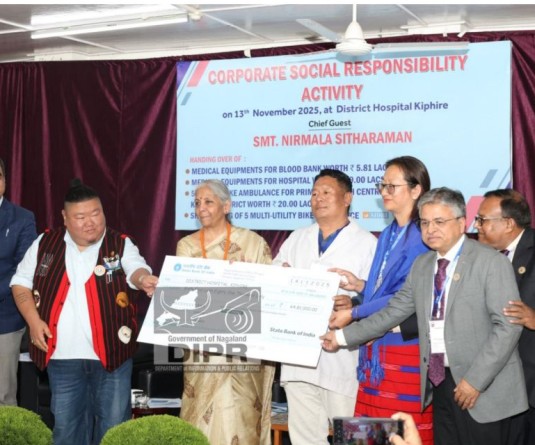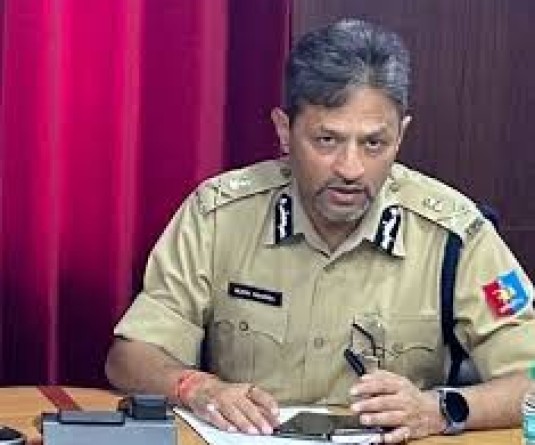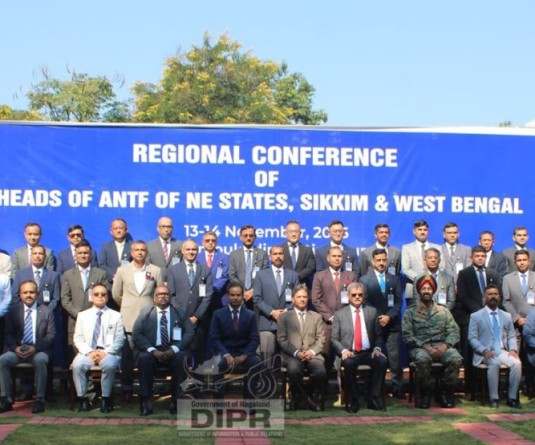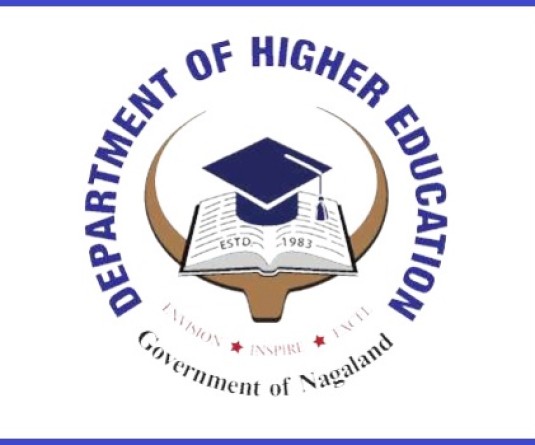
anjoy Hazarika speaks of his encounter with Phizo and other figures from Northeast India in a talk organized by NSA on his recent book, ‘Strangers no More: New Narratives from India’s North East’
DIMAPUR, MARCH 19 (MExN): Human right activist, scholar, author and filmmaker, Sanjoy Hazarika said his perspective of the Nagas changed when he met AZ Phizo. Hazarika was nineteen years old when he met Phizo.
Hazarika, speaking at a talk organized by the Naga Scholars Association (NSA) in New Delhi on his recent book ‘Strangers no More: New Narratives from India’s North East,’ recalled his brief encounter with the Naga nationalist and quoted Phizo’s word- “One day the Assamese will understand what we have gone through. They will speak our language, because the Indian Government cannot be trusted.”
He turned out to be right, said Hazarika.
Hazarika’s personal encounters with other figures from North East India and of the people of the region in general eventually let him analyse what it is that drives people of this region to press on with their aspirations. For him, it is a continuing quest, a press statement from NSA stated on Monday.
The author also talked about his experience as the lone member from the North East India in the Jeeven Reddy Committee set up to review the AFSPA, adding, the Committee, however, seemed to undergo a change in their attitude and finally recommended to repeal AFSPA.
He recounted the first trip of the Reddy Committee to Imphal for public hearing amidst bandhs and protests consequent to the Manorama incident. The tipping point for the report is the tragic story of a man who went fishing but never returned - he was caught in crossfire between the paramilitary forces and underground cadres.
In this connection, a woman told the Committee, “I have something to tell you. I’m the mother. I do not want any other mother to go through what I have. I did not know who will read your report, I do not know who you write it for, but I want to tell you this. This is not right. I don’t want any compensation.”
Also touching upon the ‘protracted negotiation’ and the Naga Framework Agreement between NSCN (IM) and GOI, he maintained that the greater challenge is reconciliation of political groups and the people. The civil societies, academia, intellectuals, etc who have the goodwill of the people need to lead the people in reaching out to one another to facilitate reconciliation.
Reconciliation, though hard and long, leads to healing and is essential for the people to move forward. With the need of people’s participation for change, Hazarika hinted on the need for good leaders by referring to the sacrifices made by Nelson Mandela, whose life and works continue to stir people of different backgrounds to tears till today.
“The world of the Northeast has seen some good and much bad. We’ve looked at some of these factors, which have shaped and reshaped life and society, politics and power, driven by passion and determination by geography and history, insensitivity and stupidity, by plain common sense, by brutality and by kindness,” Hazarika stated.
Hazarika was also of the opinion that North East India has taken inroads, especially in the metropolitan cities like Delhi, which he averred, takes a lot of courage to carry on.
The talk was followed by hard-hitting questions and responses, some of which include – ‘GOI’s national security vis-a-vis Naga aspirations; ‘camouflage politics of GOI,’ ‘response of neighbours in the possible event of integration of Naga inhibited areas,’ etc.
Dr R. Vashum, Associate Professor, School of Social Sciences, IGNOU, the chair of the talk, with acknowledgement of the contribution of the writer, remarked that many Nagas are still strangers in this country.






